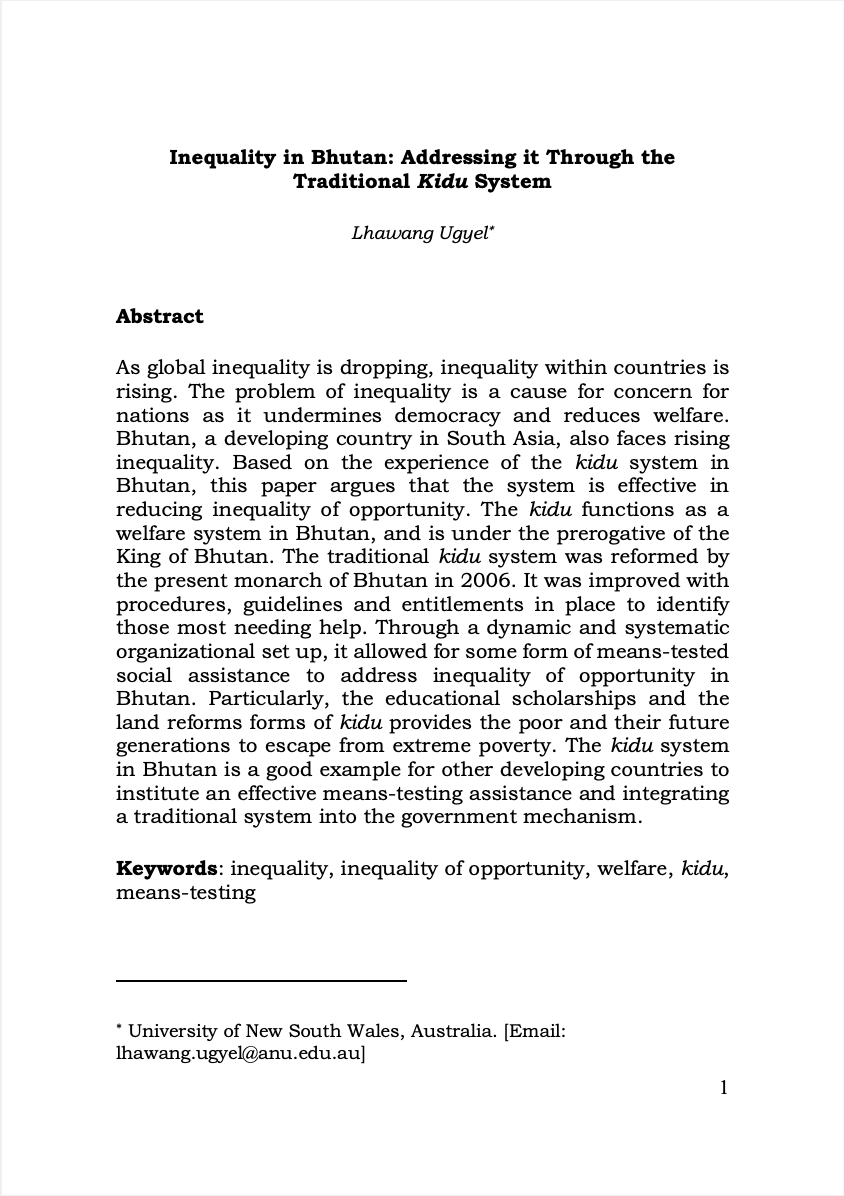Resource information
As global inequality is dropping, inequality within countries is rising. The problem of inequality is a cause for concern for nations as it undermines democracy and reduces welfare. Bhutan, a developing country in South Asia, also faces rising inequality. Based on the experience of the kidu system in Bhutan, this paper argues that the system is effective in reducing inequality of opportunity. The kidu functions as a welfare system in Bhutan, and is under the prerogative of the King of Bhutan. The traditional kidu system was reformed by the present monarch of Bhutan in 2006. It was improved with procedures, guidelines and entitlements in place to identify those most needing help. Through a dynamic and systematic organizational set up, it allowed for some form of means-tested social assistance to address inequality of opportunity in Bhutan. Particularly, the educational scholarships and the land reforms forms of kidu provides the poor and their future generations to escape from extreme poverty. The kidu system in Bhutan is a good example for other developing countries to institute an effective means-testing assistance and integrating a traditional system into the government mechanism.


